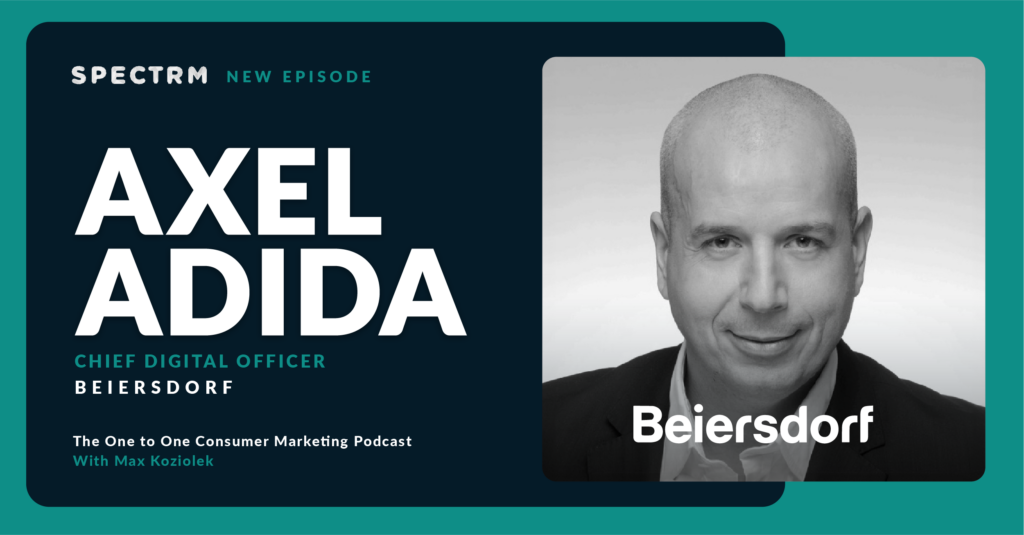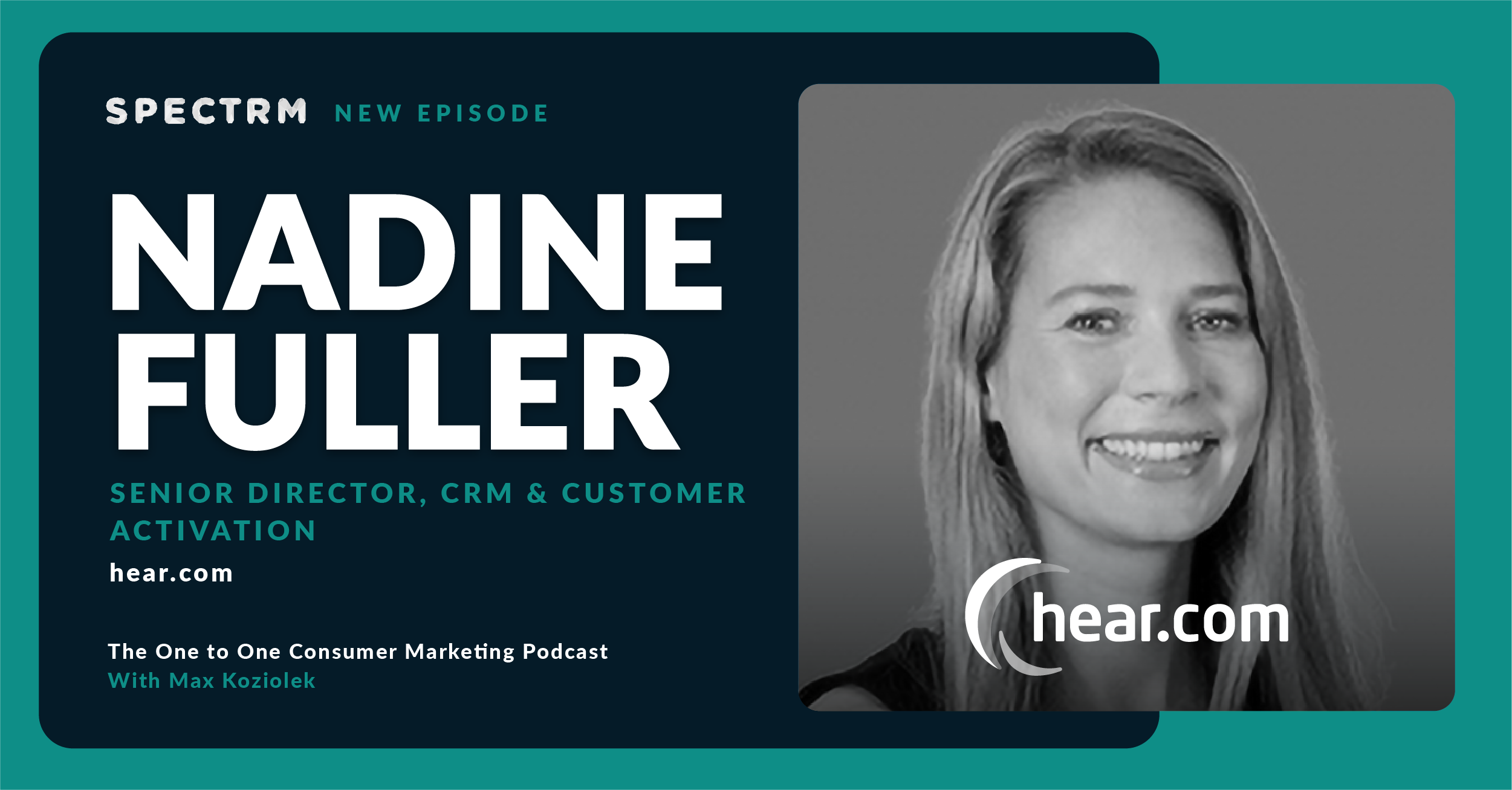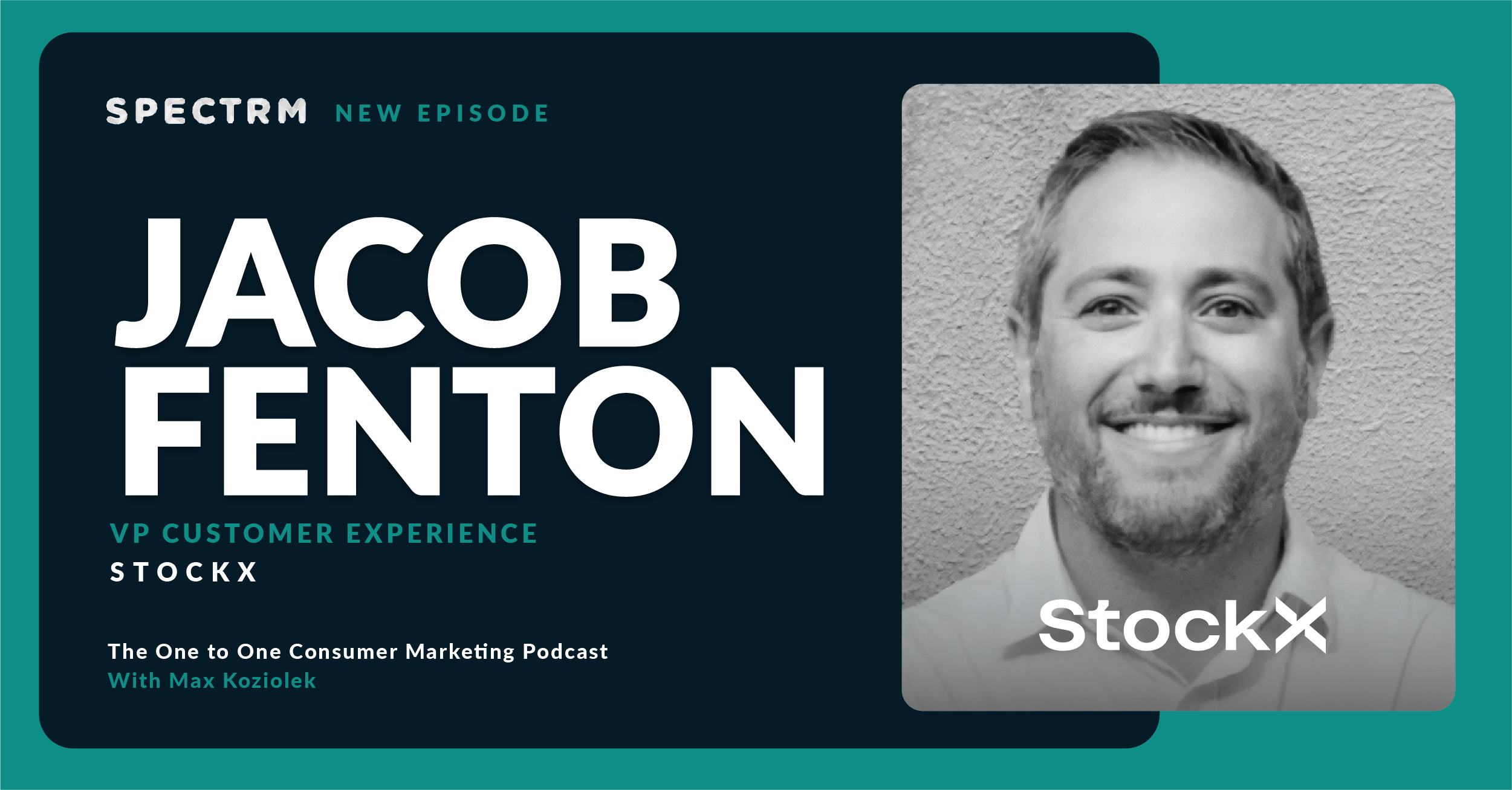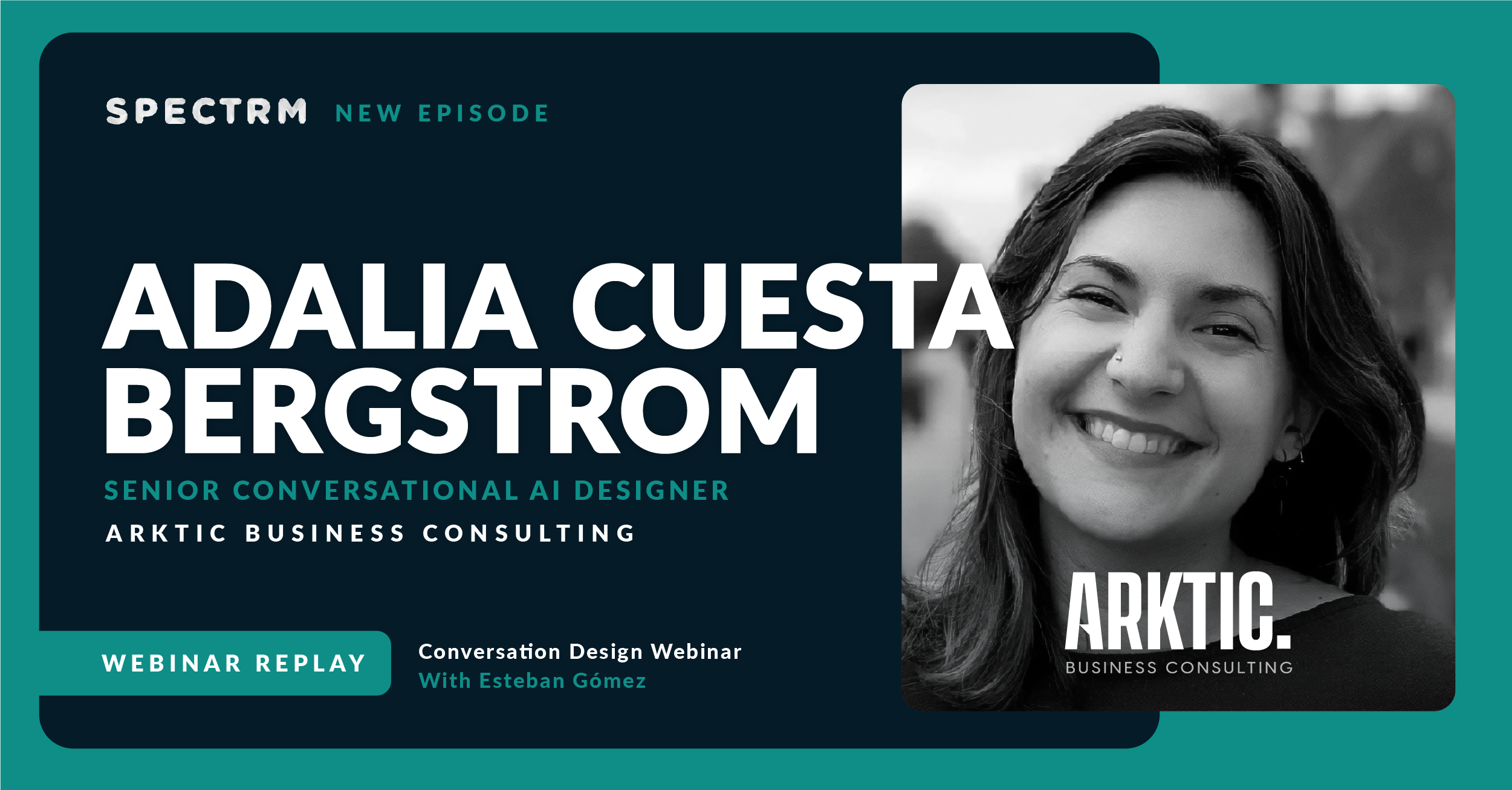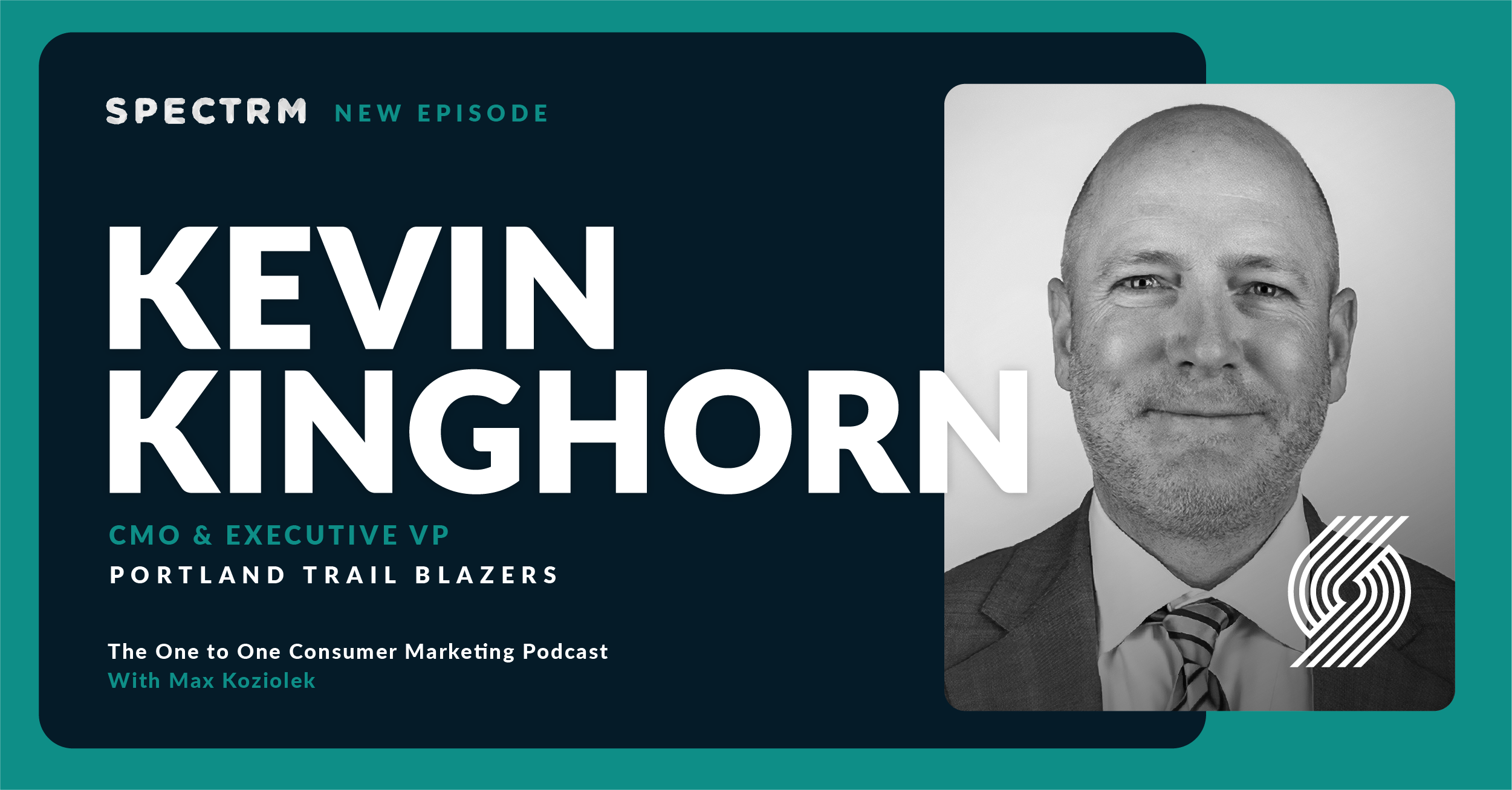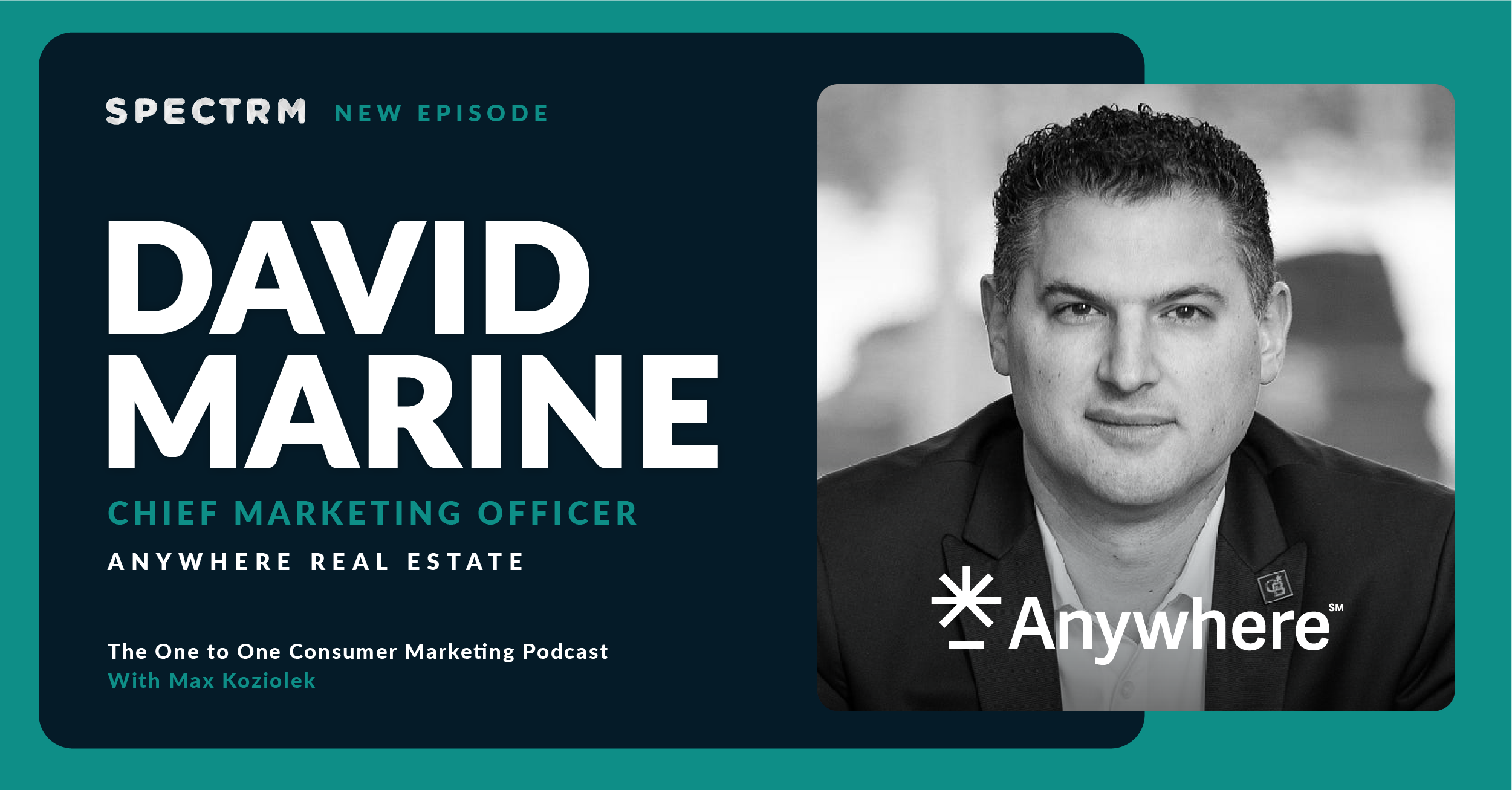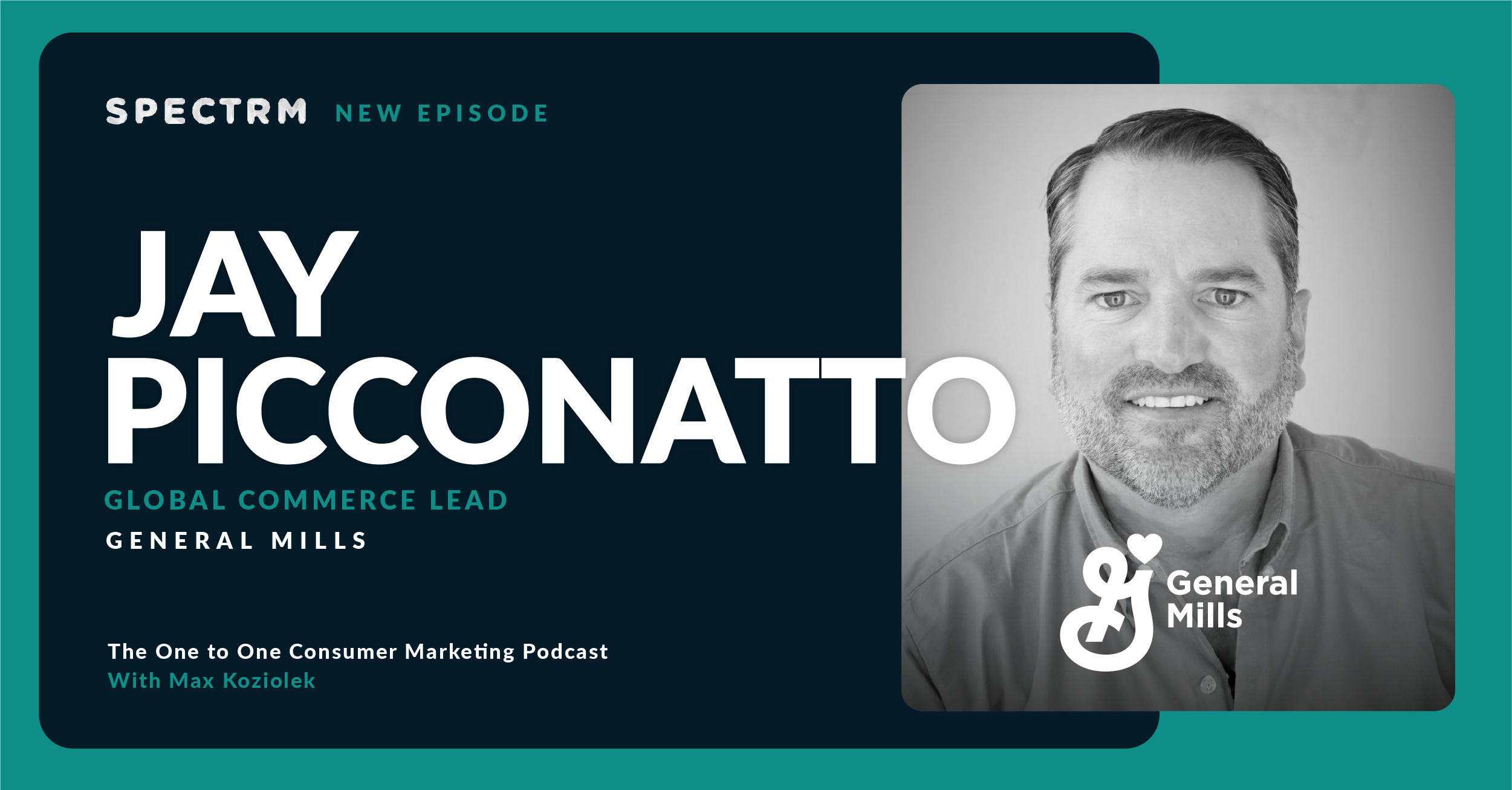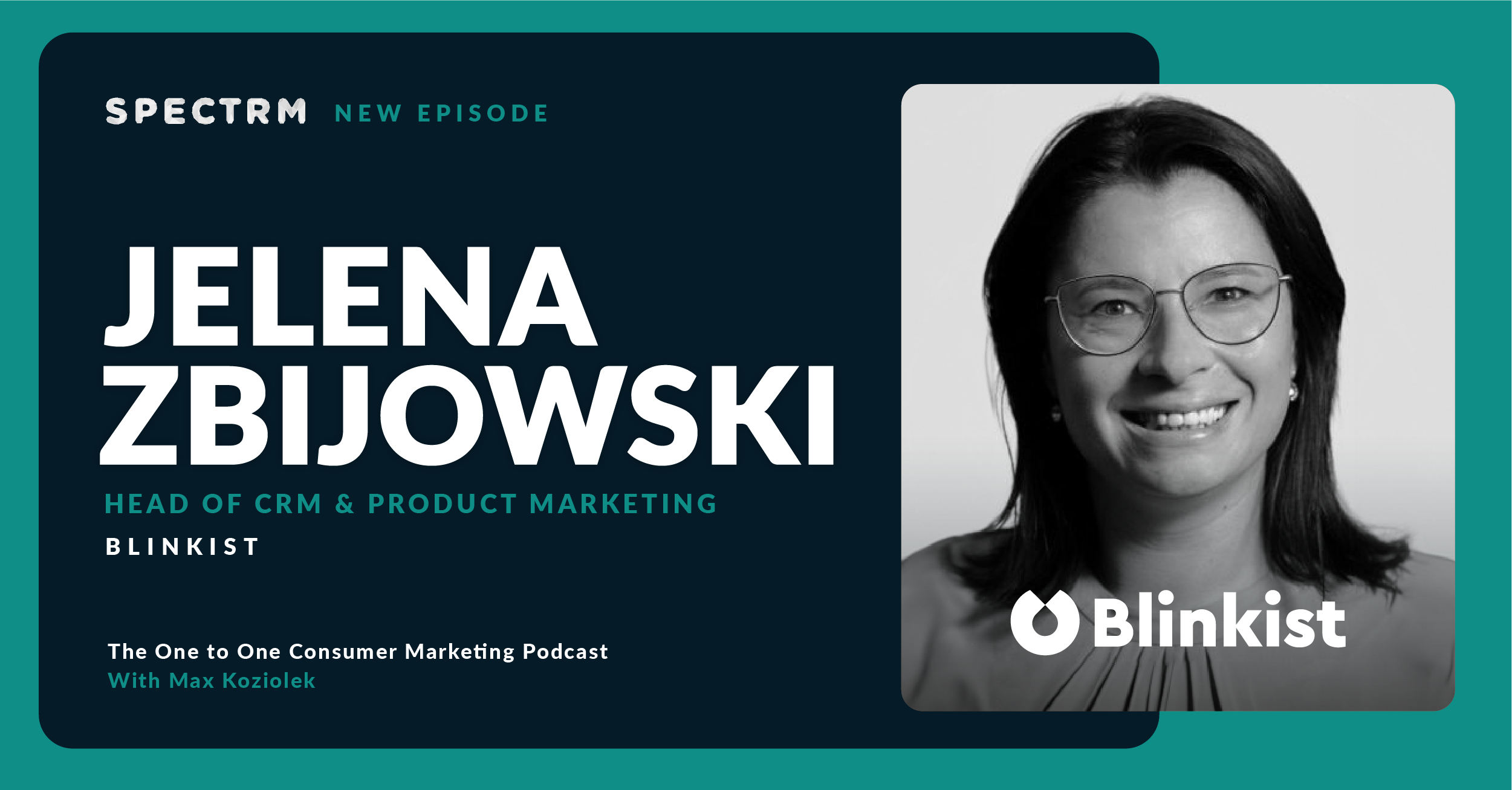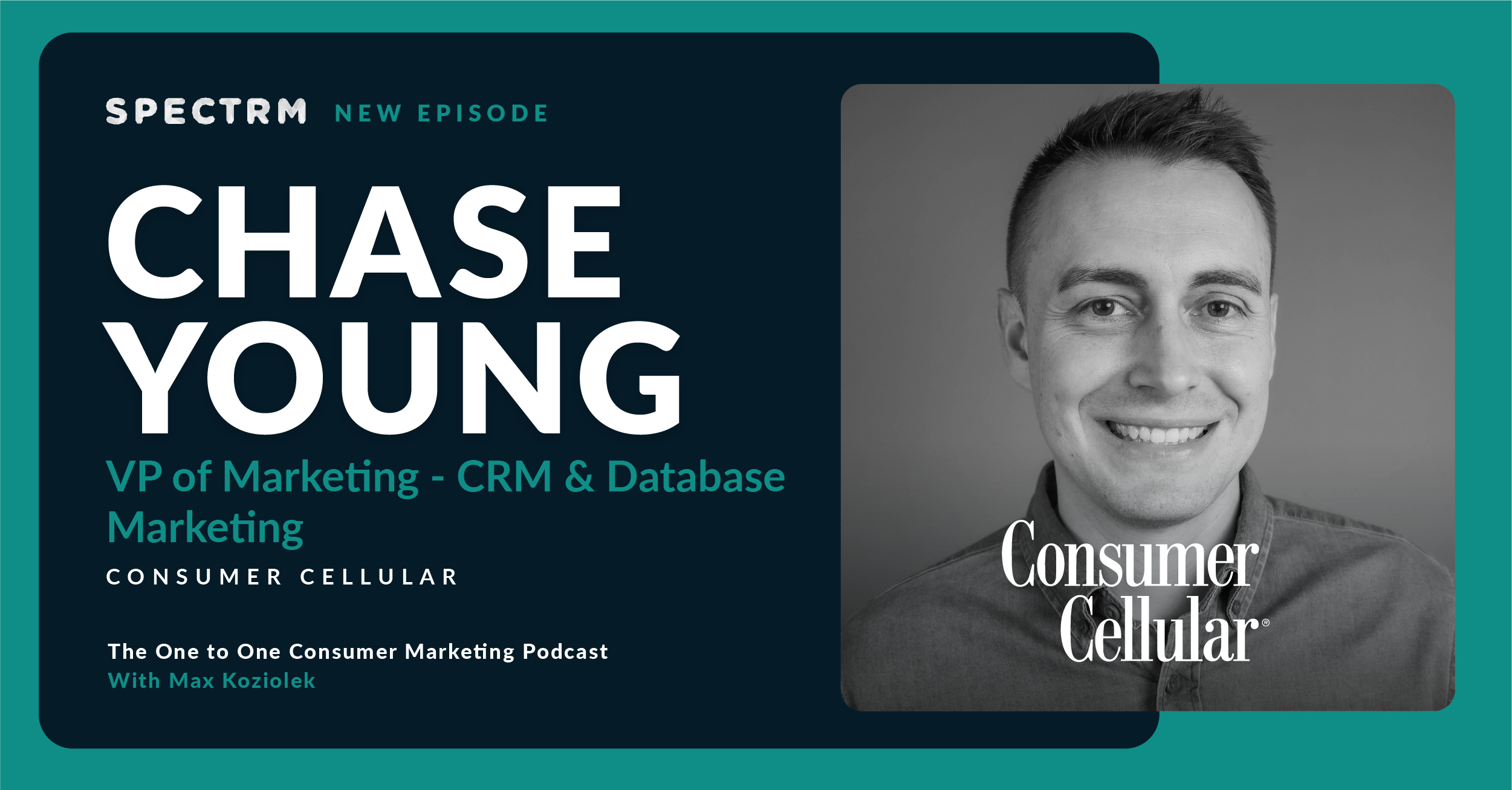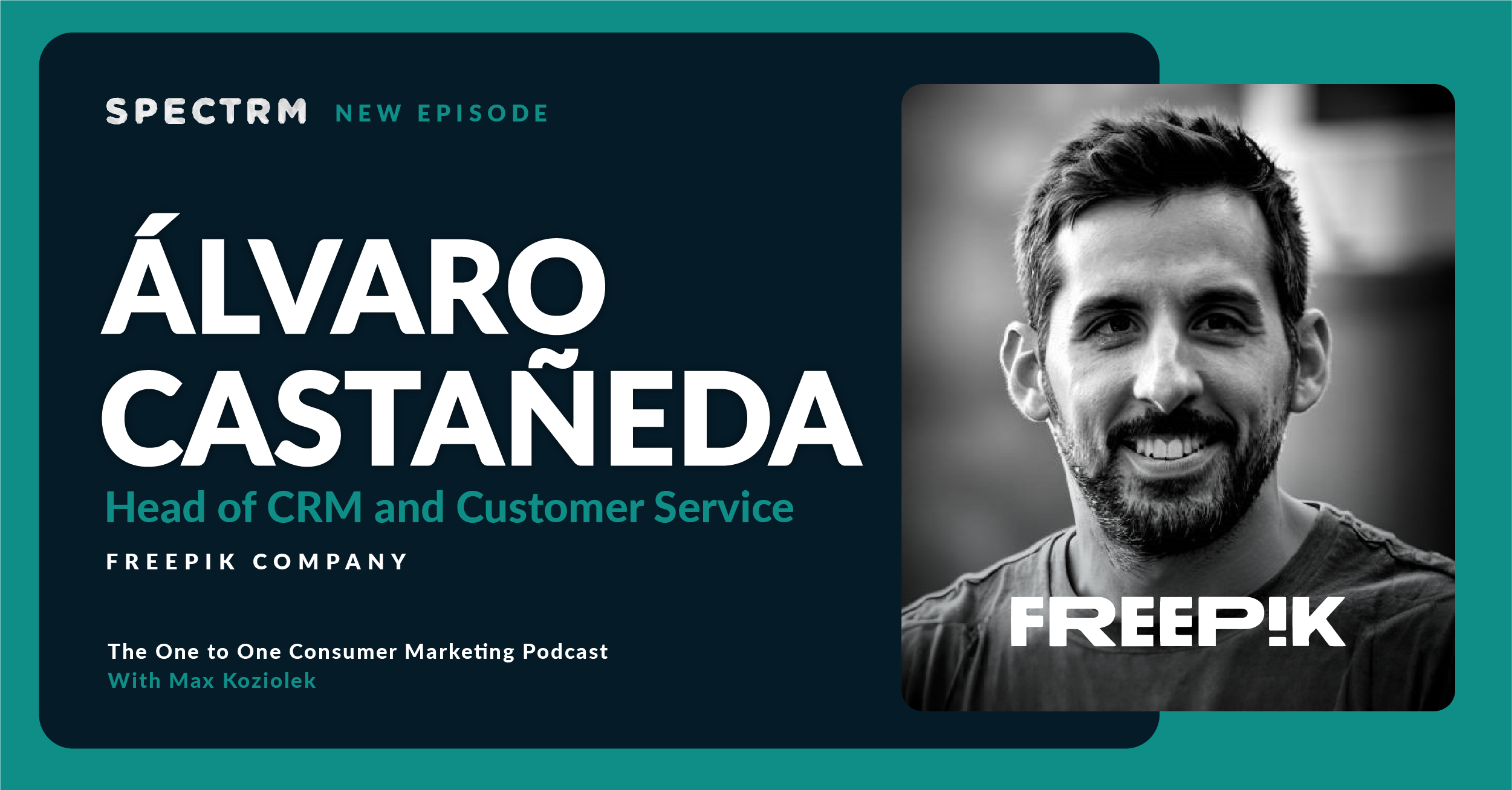Summary
Max speaks with Axel Adida, Chief Digital Officer at Beiersdorf. They discuss how marketers need to be flexible “in mind and skills” with technological and customer behavior changes, especially when initiatives like cookie deprecation are shifting how to grab customer attention. They also talk about how unique content leads to self-select personalization, what tech trends are impacting marketing today, and how learning hard skills improves problem-solving.
Topics discussed
- The need for flexibility “in mind and skills” with changes in customer behavior and evolving channels.
- Why customers will gravitate towards content tone and angles that resonate with them in self-select personalization.
- How marketers are rethinking data ownership and focusing on which signals are important as cookie tracking changes.
- How to increase loyalty by bringing freshness and constant interest in the brand.
- Why marketers should prioritize having a robust yet simple tech stack and skilled teams.
- Which technology and trends — like generative AI and the rise of influencers — are impacting consumer marketing today.
- Why learning hard skills like data, systems, or programming can help marketers become better problem-solvers.
There was a time where we used to send letters to people and we will print their first name and last name, to emails, to SMS, to notification, to social network feeds, to live, to the multiplicity of the ways people want to be engaged and the difference in the way they want to be entertained and introduced to brands and introduced to products. It's changing so fast. I think the flexibility in the mind and the flexibility in skills is truly essential.
Guest biography
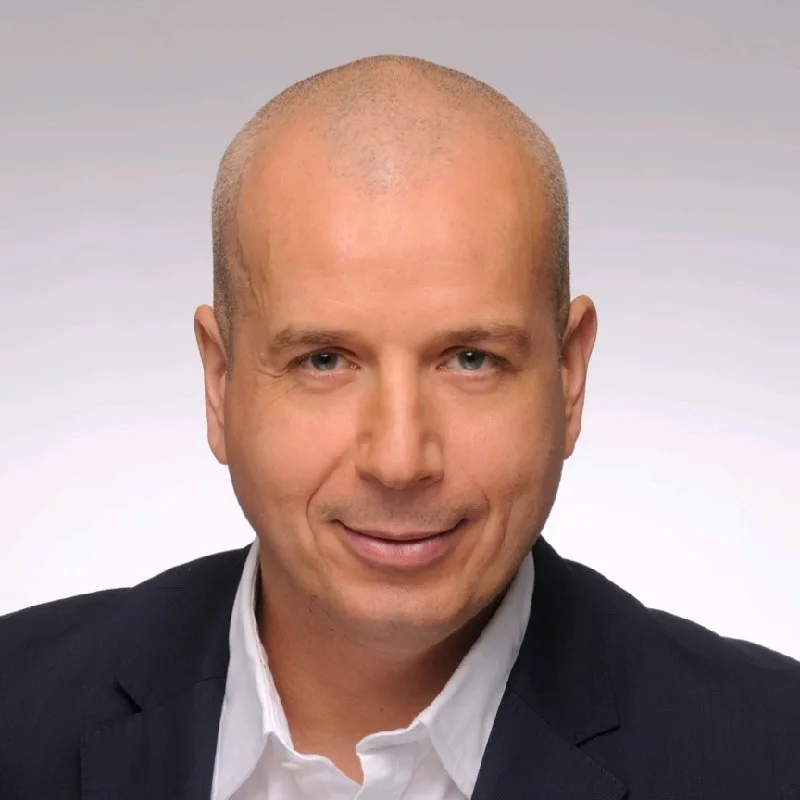
- launched two software start-ups, and started angel investing in promising founders and ideas. Joined L’Oréal to accelerate digital transformation and scale its operations across 30 global beauty brands and 70 businesses in country. Mission accomplished, he spread digital acceleration with BCG: technology up-haul, media and commerce shifts in consumer behaviours, operational change; and joined Sanofi as the wave of digital transformation was hitting consumer pharmaceuticals.
Company overview
For over 140 years, Beiersdorf has been a companion in people’s lives, caring for healthy beautiful skin. With global core brands NIVEA, Eucerin, La Prairie and Hansaplast, Beiersdorf is a worldwide leader in skin care. On a local scale, the company has strong positions with brands like Aquaphor, Coppertone, Chantecaille, Labello, 8×4, atrix, Hidrofugal, Maestro, Skin Stories und Florena.
Industry: Personal Care Product Manufacturing | www.beiersdorf.com
Subscribe to the podcast newsletter
Transcript
00:00
Axel Adida
There was a time where we used to send letters to people and we will print their first name and last name, to mails, to SMS, to notification, to social network feeds, to live, to the multiplicity of the ways people want to be engaged and the difference in the way they want to be entertained and introduced to brands and introduced to products. It changed it so fast. I think the flexibility in the mind and the flexibility in skills is truly essential.
00:36
Max Koziolek
Hey everyone, and thanks for listening to the One to One Consumer Marketing Podcast. Today I’m speaking with Axel Adida, Chief Digital Officer at Beiersdorf. Beiersdorf has been nurturing skin and trust for over 140 years, establishing itself as a global authority in skincare core brands like Nivea. With 20,000 employees across more than 160 locations, they are one of the leaders globally. Axel, thanks for chatting with me today.
01:03
Axel Adida
Thanks Max for having me.
01:05
Max Koziolek
Very excited to chat Axel, but before we get started, can you share a bit more about your path and what led you to your role as the chief digital?
01:15
Axel Adida
You know, I raised my hat to chance. One day I received a phone call which know would you be interesting in joining Nivea in Hamburg and maybe a little bit to, you know, change the digital inflection of Beiersdorf? And I went, you know, that’s a call you don’t often receive and you can hardly say no. Actually you don’t, you say yes and you move on to Hamburg, practice your german and embrace brands and skincare which are magnificent. But what drove me to receiving this phone call is lady Chance. As a child I was lucky enough at eight years old to be invited to a search training so much from the 20th century that at the time those were mainframes and the computer screens were green and you actually wrote a little bit of merely code to actually search a database.
02:09
Axel Adida
A little bit of the french efforts to join MIT Media Lab with Saint Francis La formatic where you could access computers and everything and then you get hooked up and it’s a natural trend that your first letters and your first jobs go to technology data. At the time, which was a fairly new topic in the 90s, having the first computer passing a terabyte was like an emotion. Now people get that if the telephone doesn’t do a terabyte. But at the time it was the biggest computer around and data consumer relationship management, customer relationship management, the very big era of emails and sms which now is a bit passe and then a move into beauty and startups with social network open source, creating a couple of startups failing a couple investing in many startups, losing quite a few and winning quite a few.
03:08
Axel Adida
And joining L’Oreal, which is also a fantastic group to accelerate in digital at the turn of the 2014 and very important seminal moment in the digital era, because you have the first really constructed social networks and video network by the turn of the 2001st, YouTube in Facebook and Instagram. And then you start to have elaborate smartphones and the moments where all of this coalesces in a very big change in people behavior is the mid 2010s where everybody has a telephone, your children have a telephone, roaming to social network to actually get your information and get to know lifestyle, skincare and beauty become a prevalent behavior. And that’s one know longstand at L’Oreal. And when the opportunity arose, I joined a few friends at BCG to spread the word precision marketing.
04:03
Axel Adida
How do you get marketing to be more relevant to each of us, to be more targeting in the way we buy advertising in the platform, so we avoid for, you know, there’s a good chance that you use sometimes makeup, but there’s also a very good chance that you don’t. And maybe you’re not the person that would like to advertise for makeup if you show no interest or no passion for beauty. And typically that makes a big difference. That’s a big difference with tv is addressing people in a way that you’re more relevant to their behaviors and spreading that out to all the fast moving consumer good business, from beverages to food to cars. And when I received the call from Biosolf, I say, here I am, Germany. I’m so happy to be on Team Germany and Team Biosolf.
04:52
Axel Adida
The brands have such a long lasting history. When I was a kid, the most seminal ads you could see on tv were Nivea. It’s like a Madeleine de Proust. It’s a memory that comes back very early. And having the chance to pass to millennials and Gen Z and people who discover the brands and products is truly amazing.
05:16
Max Koziolek
You can imagine it’s super impressive. So you have been very close to the technology, computers, databases, an early age. You have been angel investor along the way. You’ve been at the other side, basically on the consultancy with BCG. You’ve been with L’Oreal, and now you are a Beiersdorf. That’s a very, I would say, broad knowledge. You have seen it from very different angles. I think that’s a very interesting profile for you. Is that also what is important these days for chief digital officer to have that very broad knowledge? Or how is the role for you, when you perceive that as a CDO, how is that, do you think that’s necessary or how do we think about that?
06:01
Axel Adida
Well, we all start somewhere. There’s a first step that you have when you enter your career. Well, I think the best recommendation I have to the younger professionals that come and have a chat with me is to find a base where you develop like a very strong skill set, be it data, being Google Analytics, be it SEO, be it content, be it. Then I think it’s a formidable chance in that field to have the opportunity of changing the angles that you’re going to learn on a periodic basis. And also, I think the main reason is because people change. In the course of my career, I shifted the way I engage with consumers from physical mail.
06:46
Axel Adida
There was a time where we used to send letters to people and we will print their first name and last name, to mail, to sms, to notification, to social network feeds, to live, to the multiplicity of the ways people want to be engaged and the difference in the way they want to be entertained and introduced to brands and introduced to products. It changed it so far. I think the flexibility in the mind and the flexibility in skills is truly essential.
07:18
Max Koziolek
I 100% agree with that. If you look at the changes over, I would say the last two years. You mentioned personalization back then was to put first name and last name to make sure that they receive physical mail. How you look at the changes in digital and personalization today, what’s for you here? Top of mind?
07:38
Axel Adida
I think the most salient phenomenon that we have in the past couple of years is the rights of advocacy and influence. So funny enough, I think it’s a lot of self select personalization. First you select people that you like, or you decide to watch content that resonate with your opinion, your sensitivity, your interest, and also then the algorithm in the platforms reinforce those preferences and come back with stuff that you have a chance to like. So I think what’s interesting is at one point there was this perception that people would expect a lot of personalization in everything. Well, surprisingly enough, on occasion people personalize shoes, but all the oldies are black and usually they have the same set up for options. However, the one place that has exploded in term of preferences and opinions and angles and tone of voice is content.
08:36
Axel Adida
And then the place has made a very new place in the ecosystem, to social networks, which are really the crossroads between the content creators on the one side and people and consumers on the other side. And this matching is really something which is phenomenal. What’s very interesting is every time I have the chance to speak with kids, teenagers, one of the questions is which brands do you like and how did you come to learn about it? And very funny. A lot of it is going to be. I learned about it on TikTok. I learned about it on Instagram. Well, probably people on the Aya echelon of the age groups are going to learn about it on Facebook. And everybody in a very different way learns about it on YouTube.
09:23
Axel Adida
Since the last time you wanted to repair something in your house, like plumbing or something, usually the three things to buy at Ubi next door, you learned about it on YouTube, which is your prime destination for edutainment. And I think this one, in term of consumer behavior and change, is a very salient feature of the mid 220s. Interesting.
09:46
Max Koziolek
So what you’re saying is, and correct me if I cut this the wrong way, you’re saying that how fast the consumer preferences are currently changing, that’s the main driver for change on the brand side, on the technology side. Do I get that right?
10:01
Axel Adida
I think the one thing on the technology side is it all driven by technologies that you buy as a brand, or is it driven by technologies which are mastered by the media where you advertise? And I think a lot of the balance has done to the media. Meta is a technology powerhouse. TikTok is a technology powerhouse. Google is a technology powerhouse. And a lot of the data stay inside those ecosystems. Some talk about walled garden, but it’s not walled for no reason. Consumers kindly request that their data is not being shared with everybody. I wouldn’t like people to know what are my media preferences. I trust Google in as much Google than share it with anyone.
10:46
Axel Adida
Yes, I can be advertised based on my preferences, but I hope you won’t give it to any brand, to any people in the market and trade it like if it was a commodity.
10:56
Max Koziolek
Yeah, that’s probably one of my favorites. When I hear somewhere that Meta or Google is selling personal data, that’s one of my favorites. No, that’s definitely not what they’re doing. And it’s a complete misconception of that. Even though I read it constantly, even in every credible newspaper, everything like that, it’s always new. They are selling data. No, that’s not what they’re doing. Right. But there’s probably a huge misconception about that because I agree as a consumer, I don’t want sell my data to that and they don’t do that.
11:30
Axel Adida
I stay inside and with good reason. Who would want to sell the golden Goose we do every month with advertising and with the ability of channeling ads which are more congruent to people’s preferences. Why would you sell that? And also, if you start sharing it outside, the covenant of trust that exists between the networks and their users would be quite in geopathy.
11:56
Max Koziolek
Speaking of data and consumer data, obviously consumer data is also for you as you oversee several different brands, right? Navier. Just one of them, but there are a few others. How do you think about data? And maybe in particular we have, in September we have the cookie deprecation, where a lot of brands are struggling with because so far we’re using this for customer insights and so on. How do you look at 2024 and the changes that are coming here? As someone that is overseeing quite a few different skincare brands, I think that’s.
12:33
Axel Adida
Quite an interesting topic. I do trust that we need to embrace the future because this is a place where we will all live. And inasmuch we regret the past, it’s very unlikely that it comes back a second time. A couple of years ago, there was all this craze about having first party data, and the best way people found out to get this first party data, mostly emails, nothing more fancy, was to actually send people emails. But how many emails are you willing to receive in your inbox? What’s your tolerance? What do you want to read? What are the things that are going to be educational? Which are the one you want to have for a while or not? And where do you want to be entertaining the social networks?
13:19
Axel Adida
And I think one phenomenon that we all individually experience is our email boxes are overblown. I know nearly no one that tells me I wish I had 20 more newsletters. I meet people who tell me I want to unsubscribe to a few stuff because it’s covering my emails, which are important with, like, commercial stuff. Some people that 20 years ago would have loved to read the number of their Tesco points or their loyalty programs on their emails. So it’s a big shift in attitudes and the way people want to be entertained. And the question what do you want to receive passively in your email, and what do you want to experience more actively or semi actively in social networks and video networks? And I think the shift is very strong.
14:08
Axel Adida
So cookie deprecation right now doesn’t entirely equate the end of having relevant ads to what are your content preferences? Right now, people still watch ads that are quite congruent with the rest of the content they find or the brands they’re passionate about. If you’re a sports fan. There is still a good chance that the ads that you see on social networks are about sports because you’re also more responsive. So I think the one thing that it takes away is the impression that data is a patrimony. It’s something that you own, which is like gold, that you’re going to extract money, not consumer data. We just are custodians and consumer are very fluid. But on the other side, what has changed is a lot of signals are becoming really important. What are the campaigns people like to see?
15:03
Axel Adida
Do people like some buttons better in green or in blue? Which is the best way to showcase a product or demonstration in an ad? What needs to come first? What needs to come second? And I think we are moving to a more fluid approach of data where the ones who make it big in the marketing business are the ones that are able to embrace multifaceted signals of consumer behaviors. And that’s more, I think, where I would place the competition edge right now.
15:34
Max Koziolek
So signals from different angles or aggregating this in a better way. Right. So I can just guess, but offline online, different areas. Yeah, that’s pretty cool. Is that also how you focus yourself currently that you’re saying, okay, that is my priority where I want to go more, invest more time, invest more money in when you look at getting more signals or getting diverse signals from consumers to tailor your advertising, tailor your communication and so on. Is that your priority?
16:08
Axel Adida
Currently, yes. And it’s a two way street. I think on the one side it’s about having a very robust and simple technology stack across the world. Never before did we have networks that were between 1 billion and 3 billion subscribers. When I was a kid, the biggest tv channel was China TV. It had a lot of advertising at the time. But even in the US, you had channels which were limited to one country. There you have channels that cover the world. So I think this one to play with the very big social networks and video networks, it’s really about having the right technology set up and teams which are really skilled at mastering the content that you need to put on it.
16:54
Axel Adida
And the way you bind, the way you engage consumer in satisfactory journey so that they discover the product, they discover the brand, and they get passionate about it. And on the other side, there’s all the efficiency and it’s capturing all those multiple signals. Where are consumers? Which influencers are going to drive sales and which messages actually work a little less? And that’s how you perfect a little bit your magic recipe as a brand to be able to find your edge. So on the one side, perfect execution, and on the other side, having the breadth of understanding of the marketplace and consumers to find uniqueness.
17:36
Max Koziolek
Because you’re describing this, we have nowadays global platforms with billions of users. So Beiersdorf is in 160 countries with also, if I read this correctly, I think you even have to adjust your products to different climates. For example, you probably can segment by country, but how do you do then segmentation? Because you are a global brand, in 160 countries, you have this mega platform. How do you think about segmentation and having slightly different messaging to different audiences? Because that seems like an undoable task.
18:14
Axel Adida
Yeah, I think one of the things which has been a major trend that we are embracing is diversity. The skin types that we care for are very diverse from Asia, Europe, countries in Africa and South America with very different skin types. So I think part of it is making sure, when the portfolio is being developed, is that we care for very specific needs and expectations. So really, to a degree, there’s a very important need to understand what are the specifics, what are the expectations? And sometimes the trends travel. Some trends that you see starting in Korea are going to land somewhere in Asia and in Europe at some point. And sometimes it’s a. I think, you know, the greatest muscle that needs to be exercised is curiosity.
19:12
Axel Adida
How do you bring together the consumer insight to have the breadth of knowledge, to understand what’s going to work best, to serve people and to meet interest and click their hot button?
19:23
Max Koziolek
Are then the markets for you fairly decentralized, or is it more like centralized? Because I think when you were describing, I don’t know, skincare trend in Korea, is that then reaching the global stage, or is it not reaching the global stage? And it’s a little like, I don’t know, a Netflix that tries to get squid games, that makes it a global success or not? Right. So I think we had some hits from Germany that became a global hit. But I think at the beginning, everyone was always wondering, is it possible to know localized stuff to the global stage? And you’re seeing this, but how do you organize that? Is it decentralized or is it central? How does it work for you?
19:59
Axel Adida
Well, I think the first thing is, for a long time, skincare products and creams have been traveling easier than movies. And you found Nivia tins for a long time, all across the globe, whilst the passion for local cinemas has been ramping up with a little time. So I think it’s a very long trend that people, they want to share a lot of the magic that you have in the skin expertise and the skin science and Germany as a very long standing tradition to build actually this skin science and products. And I think that’s a very strong asset that our brand have. They come out with a century of expertise in caring for skin. And this is also something which has a global outreach and then the reasons to buy products and the skin sensitivities are a bit more different.
20:53
Axel Adida
I was lucky to discuss today with a partner who’s also consumer for our anti pigment luminous range. And she told me, yeah, I come from southern country and my skin is more prone to have stains. And one of my friends told me it’s a big deal and word of mouth. And since then I took about it to everybody. I’m not sure she did a couple of TikTok video, but this, for instance, is a very significant trend that’s ramping up today. It’s really a need that people have, and when they click about it globally and they will click for different reasons. Some other people click because after having children, it’s also something that triggers a little bit of changes in pigmentation. And that’s also something your people get massively interested. I think what you’re saying is you’re also driving to another question.
21:45
Axel Adida
If you have another trend, the passion for people, for edutainment is very strong. The desire to understand why is cream efficient? Why do the stain go away? How long does it take? How does it work for people who are like me or unlike me? And what is the things that is going to help me to have a healthy skin? And specifically, when you talk with teenagers, it’s very interesting how you build your body of understanding of what is skincare, what is the right routine? Should you wash your face with a soap? Always a more gentle cleanser? Should you take away your makeup with soap or with a dermakeup product? It’s quite interesting. And all those social and video networks are very instrumental to help people build this knowledge.
22:36
Axel Adida
And it replaces a little bit the old styled word of mouse, where your good friends or your mother or your grandmother would drive you into learning how skincare works. It still happens, especially when you need to take your mother to DM to actually pay the bill. But it’s also something that you get from many places, especially what’s in fashion, what is new, what is different, what do the molecules and ingredients do?
23:04
Max Koziolek
You’re absolutely right. I’ve not thought about this. But my impression is also that skincare became a little bit of has seen a new hype, but also the science behind that has become very fashionable. To know about this, to have different serums and then this cream and that cream and the skincare. Not having a skincare routine these days is a problem. I think you really should have one. And I think that’s really quite new. If that is so drastically changing. And I think you’re describing that, especially for the younger generation, which sees some short video and that gets viral and two days later, I don’t know, a creamers can only be sold out. How do you maintain brand loyalty in these kind of super dynamic environment?
23:50
Axel Adida
Yeah, there’s two ways to look at skincare and beauty. One way you could say people are disloyal. Sometimes they buy another cream or they buy something else. There’s another way to look at it, which is to find out, well, actually, when they like some products, they tend to buy them quite often. Not exclusively, but quite often. It’s surprisingly loyal. People do actually come back to products which they find effective, where they do appreciate the textures, they do appreciate the scent, they do understand how it works, and it becomes part of a daily routine. And some other products, then you experience change or you’re sensitive also to novelty and you try another one and then you come back to your old preference.
24:35
Axel Adida
And I think part of the beauty business is how do you make sure that the novelties and the modernity brings love and the appetite to come back to the same products every day. And I think that’s the beauty of being a digital marketer, is how you bring this freshness and make sure that you keep a constant interest in the brand and the product sets.
24:59
Max Koziolek
Yeah, this freshness is probably important because you somehow have to convince each or every generation or parts of each and every generation for your product, and then you hope to become part of the routine and then they buy and buy. Is there any chance for you to measure that? Some website. Max became excited about Nivia and he is now buying that every two months he’s buying a new tin. Is there any chance for you how to measure that? Do you know? I don’t know roughly how much people are constant buyers or one time buyers.
25:34
Axel Adida
So the beauty about industries that relied on traditional distribution systems like DMs or Rosmann’s or Sephora is you get this information through panels, Nielsen being one of those. They provide you with this information on a monthly basis. But the more the world goes e commerce, the less you know. And maybe in a couple of years we’ll find this information again. But right now it remains an emerging channel where very focused on selling more and more. But you don’t necessarily get the same feedback that you had in traditional distribution. So this one remains a very open and very interesting territory in the discussion with ecommerce partners, especially for an idea.
26:20
Max Koziolek
I think ecommerce is a very interesting topic because in the end every ecommerce company needs to increase their basket size. So have a proper basket size so it makes sense to ship, right? Because you have shipping costs and consumers have a very low tolerance for charging for the shipping. And I know you have the potential trouble of returns and all the kind of logistics that comes around that. How do you do that for a brand if you go d to c doing that? Because it feels to me it’s quite challenging. And I know that a lot of retailers in the space naming Wasman or I think DM as well, they are quite reluctant to go into that area because they’re saying first that’s a headache. And the second thing is if they come to the store, it’s better for us.
27:04
Max Koziolek
So is that possible for buyers stuff to go DTC?
27:08
Axel Adida
Well, there’s two different questions. One of them is if you go to the US, for instance, Walmart, target or Amazon have become very significant players in the e commerce space. And there’s a chunk of the US populations that get home deliveries. And then you’re totally know when you get a home delivery which is working, which is safe, where you’re used to getting your parcels at home for you know, there is a very strong interest to expanding the stuff you buy on it to avoid having herons. And I think this know the big partnerships in Asia you will find people like Chopi and Lazada doing the same, or Mercado libre in South America. So DTC is a topic, but indirect is actually the enormous topic. People do have relationship with retail and retail delivers door to door.
28:01
Max Koziolek
Now as I tell you, that makes a ton of sense to do it this way from a technology point of view because you have that extensive background in that. What are the three things you’re currently almost excited about from a technologies perspective?
28:16
Axel Adida
I think right now a part of my heart is very passionate about all that’s happening in the generative AI space. And one of the things is when I started my career, we tried to use neural networks like anti artificial intelligence to do mathematics. It didn’t work. And then people who really worked hard and who were very smart found out that with large language model expanding this could help you doing the mashup of text or translation, and in a beautiful way. And right now I think the more we get formats, the question is how does generative AI helps to do all this format transformation in a way which is a bit more seamless right now? It remains a very handy and very tedious process, and not only for text, but also for images and increasingly for moving images.
29:11
Axel Adida
You said we deliver in 160 countries, we’re properly present in a little less, but nevertheless translations are so many. So you want to translate a page on your website. How do you translate in 70 pages with the right mentions and the right claims, which are completely okay for each country. That’s something where gene AI can make a very strong difference. At the same time, it’s also very interesting to see how the players are moving in this space. One of my very good friends told me at know I’m experiencing Microsoft Copilot and it’s actually doing the summary of my meetings in a very cool way. I said, oh God, can I have it too? And this you find a bit of AI insight in many walks of the business.
29:59
Axel Adida
I think the second very strong interest that I have is how the technology platforms behind the media space are evolving. And yes, we see Google, we see meta, and we see TikTok from a consumer angle, but they’re also a massive interface for all advertisers. I think there the question is, how is it evolving? As what you mentioned, cookie deprecation, but also an increasing part of AI in the activity. What are the platform going to provide for the future? And last, I think the very strong topic is the rise of influence. There’s a very big activity on influence, which has been very local, because influencers are local language. So for a long time, agency would scatter only for the Italians and sometimes swiss, and sometime for the Americans, and the Americans that speak Spanish.
30:54
Axel Adida
And now the question is, how do you have the same kind of seamless technology across the world? And I think that’s a very decisive moment for the industry, where standards starts to emerge and the industry start to be equipped at the par of the importance of influencers for consumers.
31:13
Max Koziolek
That’s a very interesting point, because influencer marketing is still, when you look at how efficient the other marketplaces in media work, still the Wild west, right? So when does influencers become programmatically accessible? I think that’s a very interesting question to ask, but I very much agree with you on Gen AI, advancing and accelerating workflows in almost every part for sure. And also interesting to see how meta, TikTok, Snapchat and so on. Are going to respond to providing those kind of tools to advertisers. I’ve seen interesting announcements from their last conferences. But let’s see what it means. Right? Is it just tooling that you also then have in Adobe that they have somehow cheaper or for free in there as well? Or is it more advanced? Let’s see, let’s see.
32:05
Axel Adida
Very excited about, you know, it’s a very interesting question that, you know, is it a magic that you’re going to find in your advertising platform or is it a magic that you’re going to find in Photoshop? Yes, and also I think what’s interesting for AI is for a little while there was like a wild moment where people believed that copyright would disappear with AI. Actually not. So part of the question is also how people tie the knot on intellectual property. How do you ensure that the solution that you have is not only technologically sound, but it’s also IP completely. Okay. And that’s something that the industry is discovering, the advertisers are discovering. And I find it absolutely fascinating.
32:55
Max Koziolek
Absolutely. I mean, let’s see the jury, and it’s literally a jury that is out on the New York Times and OpenAI, where I think that is a lose situation for OpenAI. Right. So if they bought basically and pay higher price to New York Times because they were negotiating before now New York Times sued OpenAI for copyright infringement. If they butch and pay New York Times more and more publishers will come to them and say, okay, we want to be paid as well. But if they lose so publicly against the New York Times, the same is happening. So let’s see how Sam Altman is solving that. He has been a phenomenal CEO so far in that. But that’s really a strategical challenge and a dilemma they are a little bit in.
33:41
Max Koziolek
But you’re right, I think that’s on images as well, that we will have quite a lot of discussions very soon.
33:48
Axel Adida
About, know, it’s know, there’s very long traditions that rights know, if you wanted to train your AI on, you know, it’s completely know, William is not going to come back to see you. It’s completely free. Well, the problem is every text that you’re going to have is going to sound like, you know, which is probably not appropriate for skincare and same for imagery. But also it reminds a moment in the industry where such a big effort was made to constitute data banks of images chargeable for rights. And there’s quite a couple in the marketplace where you can get your images, go and shop them and those are very central to the web economy. Many websites work on stock photos.
34:41
Max Koziolek
Yes, absolutely. I’m wondering what to those kind of business models going to happen. I know some of them started to embrace the change by also offering that kind of services, but let’s see, it’s cannibalizing their core business. Yeah, let’s see what’s going to happen with that. I have another more personal question for you, and that is, what are your top three pieces of career advice? You are a leader at a global consumer brand with a big c title. What kind of advice would you give your young you based on your career? Or what do you know?
35:15
Axel Adida
Now, I think it’s a fantastic question. If I look back, some of the things I’m quite happy with, in retrospect, some of us properly, I would do it differently, but the one I would do the same is work with people that you find exceptionally bright and inspiring because you’re going to come every morning. Work is hard. Work is tedious. Not every day you will succeed in your amd. And if you do it in an environment where you’re really inspired to emulate what your peers and bosses and younger cells are doing, it’s fantastic. And I think it’s also something I also apply to myself. Sometimes I see an intern and I say, oh God, the guy or the young woman came out with like a fantastic angle. I’m a bit jealous. Next time I’ll do better.
36:09
Axel Adida
And that’s fantastic because it maintains a form of freshness. The second thing, I think developing in the digital marketing and digital space, hard skills is a fantastic asset. Not because an accomplishment on their own, but they help your brain to function in a more systemic manner, to approach problems in a more holistic way, and to find simple solutions. The Google cookie cutter angle, to really cut problems in a very simple way and come to a solution. And so hard skills are fantastic. Could be data, could be systems, could be programming, could be machine learning, could be media, or it could be very much technical skills on photography or artistry. But I think it’s really strong to other base. I didn’t choose data. Data chose me absolutely randomly.
37:03
Axel Adida
I answered a company at the time, Accenture, was on a tv show at 08:00 for the news. Then we have new offices, which are open spaces and people can choose their desk. So I wrote a letter and said, do you want me? And three weeks afterwards I was in the staff and they said, oh, what about data? I said, I know nothing. Well, it’s not a problem, just go work and I think this one is also great to do hard stuff, great to do technical stuff, and not be shy about embracing topics that are really hard, because with a lot of work, you’re going to be really great at this. And I think the third one is having a curiosity not only for technology, but also for people behavior, for organizations, for consumers, for teams. It’s fantastic.
37:54
Axel Adida
When I look back at the past 25 years, how much behaviors have changed. 25 years ago, people would connect. At the time, they would say to the Internet with a telephone. No, I don’t know anybody who has a telephone. You would have a phone line, you would plug it into a modem, you would connect to it. And at the time, if you could have teletext, it was fantastic. And right now you’ve moved to a place where you can have streaming of hd videos. So the change in the magnitude in the delivery, in the quality, in the content and the way we approach media is so strong. I mean, it’s interesting to have a perspective on how it changes us, the advertising market and also us as know. There’s a question I like to ask, and so I’ll ask it to you.
38:44
Axel Adida
Could I take away your telephone for a month?
38:46
Max Koziolek
My telephone for a month? A day is a challenge. So I would say a month is no way.
38:51
Axel Adida
It’s quite know. Once upon a know, people would go on holidays to Venezuela and nobody would have a telephone, and everybody found it fine. And now if you leave your fingers out of your telephone for a day, after a day, you will show that you’re missing something. You will be anguished. Your connectivity with the world would be geopolitized. So anthropologically, it’s quite funny to see how a small piece of technology has changed us. Even at the time where people came out with Terminator, people believed that a cyborg was a sort of like robot with a human head inside, or mischievous and malevolent AI. And actually what we get is a young guy with a telephone in his hand talking to an AI, which is not exactly the way we had looked at it.
39:41
Max Koziolek
Arnold Schwarzenegger looked differently.
39:43
Axel Adida
Yeah. And it comes with marvelous things. I do have a passion to play chess on chess.com with people everywhere around the world, which is very enticing passion. And I get crazy about Wikipedia, but then I needed to do a, you know, if you’re quora or Reddit, you can really get into threads for days and then say, what have I done with my day? What about a book?
40:09
Max Koziolek
Yeah, you’re right. But I think why? I like your last point. So much is because in the end, what you’re describing is being curious and positive about humans around you. And I think that’s an attitude that is, if you have that makes life so much easier, right? So you look around with open eyes and see what are people doing on their phones, right? So they are sitting in the metro, or what is interesting about this new behavior. And I think that leads to a new wealth or a different wealth view, which is much more positive and open rather than, I don’t know, being all the time annoyed about people because they behaving differently or because the metro is so crowded.
40:57
Max Koziolek
It’s always interesting to look around, and I like that a lot, to see the world and also the changes of behavior with open eyes and also see them trying to understand rather than judge. I like that a lot because it’s a very positive world to you. So, Axel, that’s been an amazing conversation. Thank you so much. But that’s all we have time for to cover today. But before we wrap up, if people want to follow your journey, follow you, where should they go? Is that LinkedIn?
41:30
Axel Adida
LinkedIn is the best place, and it’s the one network where I’m active. I do go on TikTok, on Facebook, on Insta, on YouTube for information, but if I’m active too much, then I don’t find enough time to LinkedIn.
41:47
Max Koziolek
Okay. LinkedIn is the best. And chess.com. All right, Axel, thank you so much for taking the time.
41:54
Axel Adida
Thank you so much. Have a fantastic day.
41:56
Max Koziolek
It was a pleasure.
41:57
Axel Adida
Thank you. Bye. Thank you.
